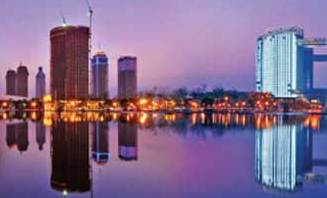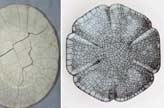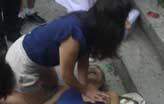Man of all seasons
Updated: 2011-08-05 11:05
By Mike Peters (China Daily European Weekly)
China, meanwhile, is a mixture, like a symphony, he says, "and all of the figures are enormous. At the end of my time here, I will understand only a little. But through that understanding, I will know more about myself, my family, my universe."
This month Simonic will take his quest for understanding to his island home, and for a few weeks reflect on his experiences and write a book. It will be his sixth.
"My own plans are always bigger than my capacity, my gifts," he says. "I am not sure if a book is work or pleasure."
While his first two volumes embrace the broad sweep of civilization, the one he's eager to finish now is a history of the region he comes from. "Marco Polo was born on an island that is now Croatia. There was no 'Italy' then," he says. "The necktie, the cravata, comes from Croatia and so does the torpedo. So I want to tell the story of all that we are proud of."
That, of course, is his job as ambassador, too.
He recently commissioned Chinese photographer Rita Zhao to take her camera to Croatia, and a colorful exhibition of her images recently celebrated the country's famous natural beauty and other highlights, which attract a growing number of Chinese tourists each year.
The country's simple but hearty cuisine is one of those highlights Croatia has been famous for both wine and olive oil since Roman times and Simonic looks forward to some intimate meals with friends and family while he's on his summer holiday.
Zhao's photos will be shown in Zagreb in early September, and Simonic hopes for a show in Qingdao later this year when the pictures return to China.
After the war that saw the old Yugoslavia break apart two decades ago, he says, "we saw the chance to make a beautiful, small country".
That motivated him to participate in politics and government, and as deputy prime minister, he assumed the portfolios that he felt mattered most: health, culture, social affairs.
"That's typical Peasant Party," he says, "conservative, traditional values, not aggressive."
It's a reflection of the country, too, in which traders, seafarers and shipbuilders shaped a society that was outward looking and tolerant of others. "It's always interesting to study what people were doing to improve their part of the world and make the most of it," he says. "It's a way to answer the question of who we are - and that's the main question."
E-paper

Double vision
Prosperous Hangzhou banks on creative energies to bridge traditional and modern sectors
Minding matters
A touch of glass
No longer going by the book
Specials

Ancient plate broken
An ancient porcelain plate was accidentally destroyed during a research in the Palace Museum.

Selfless actions
A 20-year-old girl becomes an Internet star for giving her first kiss to a drowning old man.

Space race
Homebuyers are learning the hard facts of supply and demand: too many cars and too few parking spaces.
